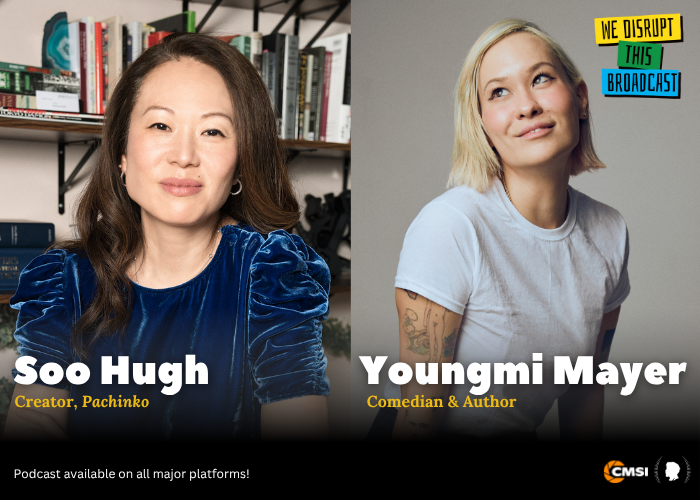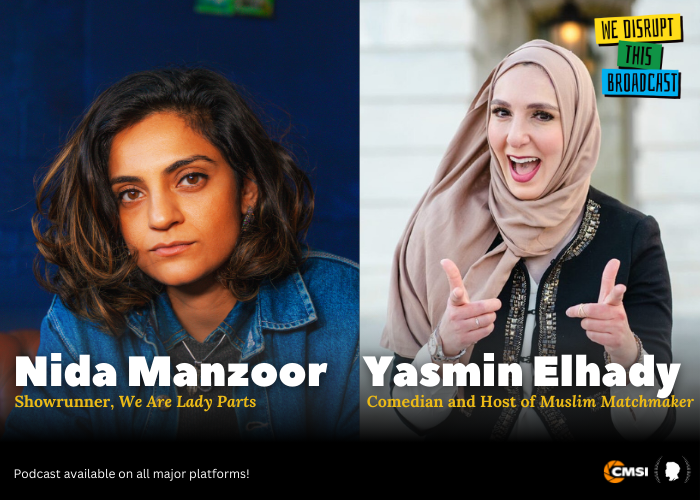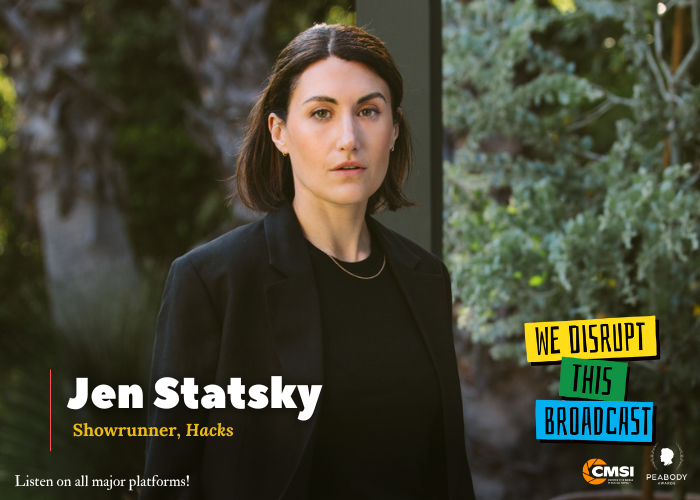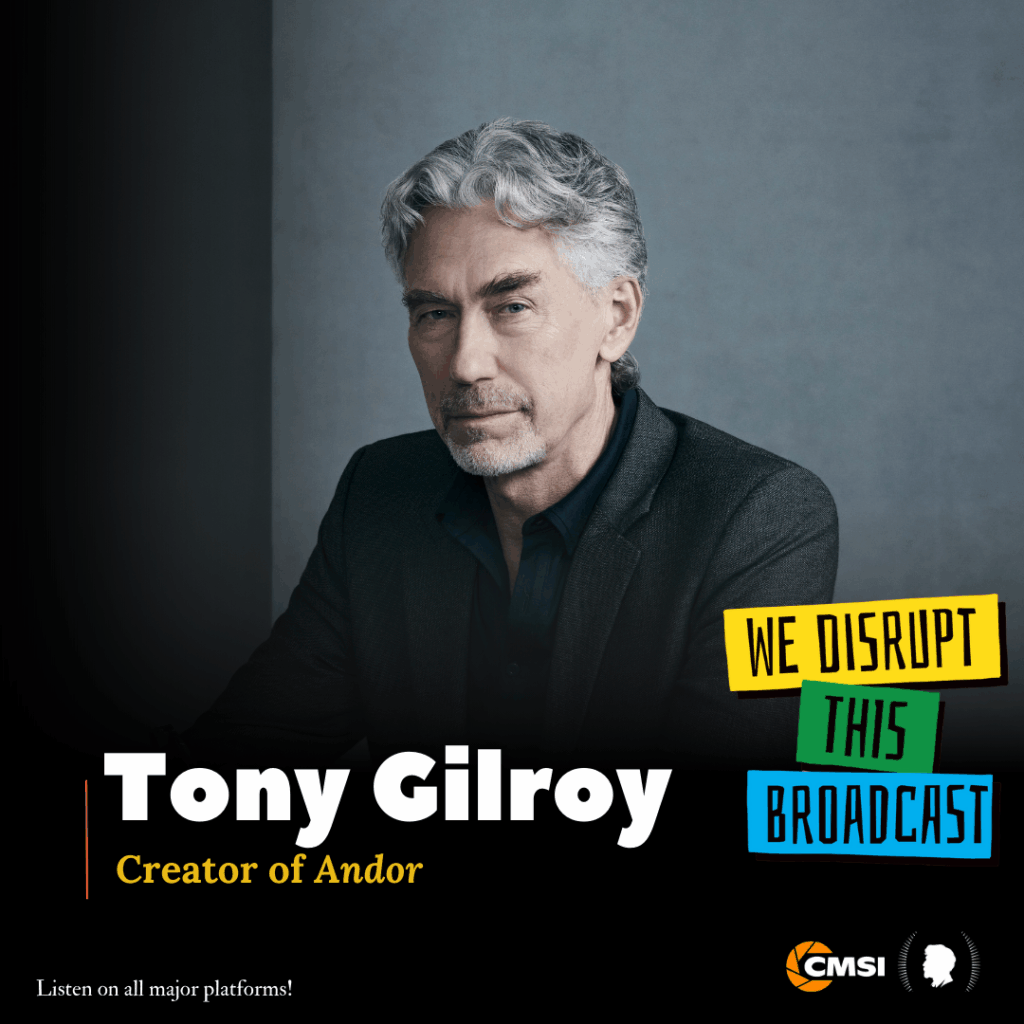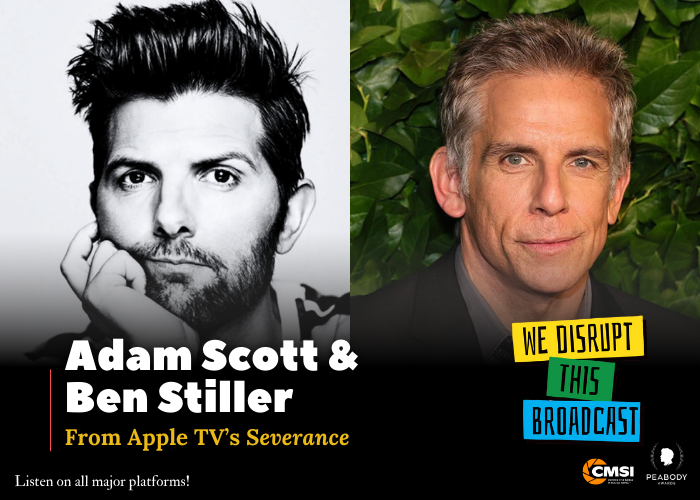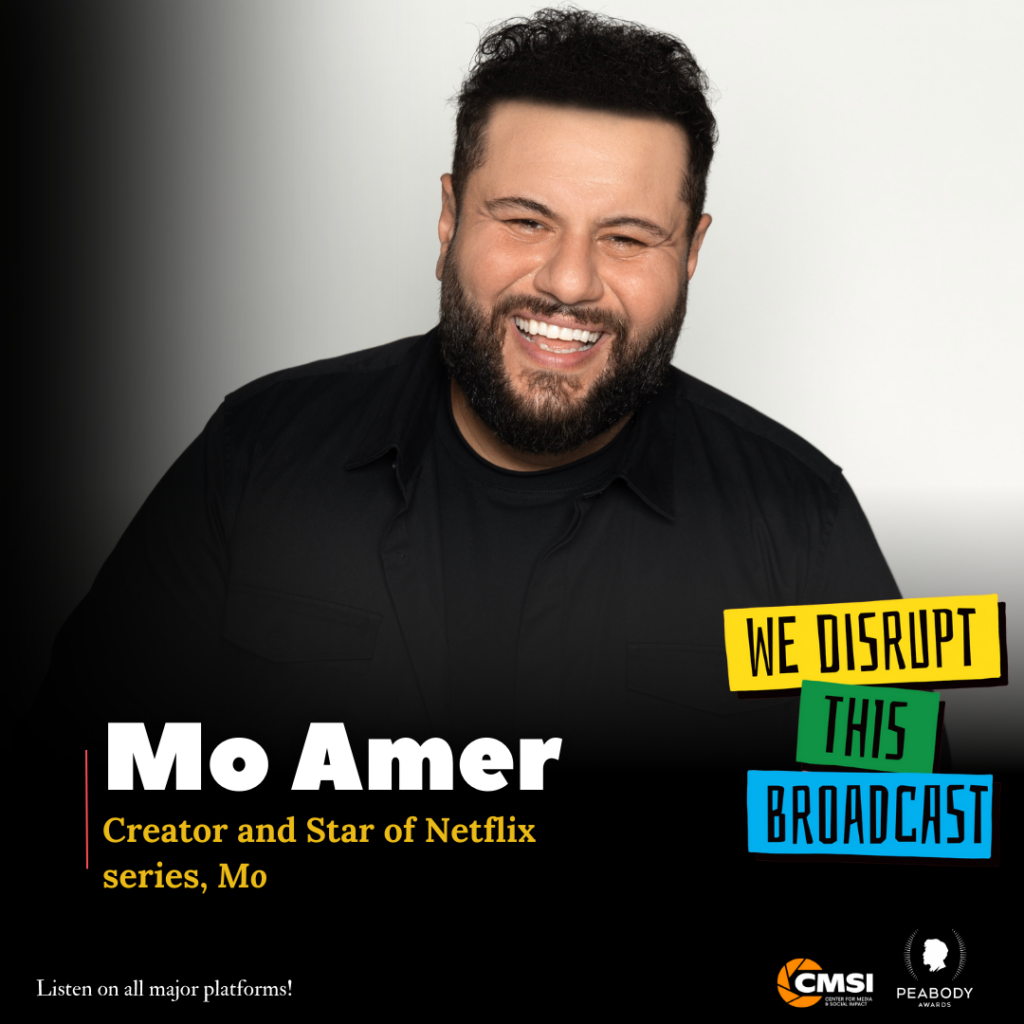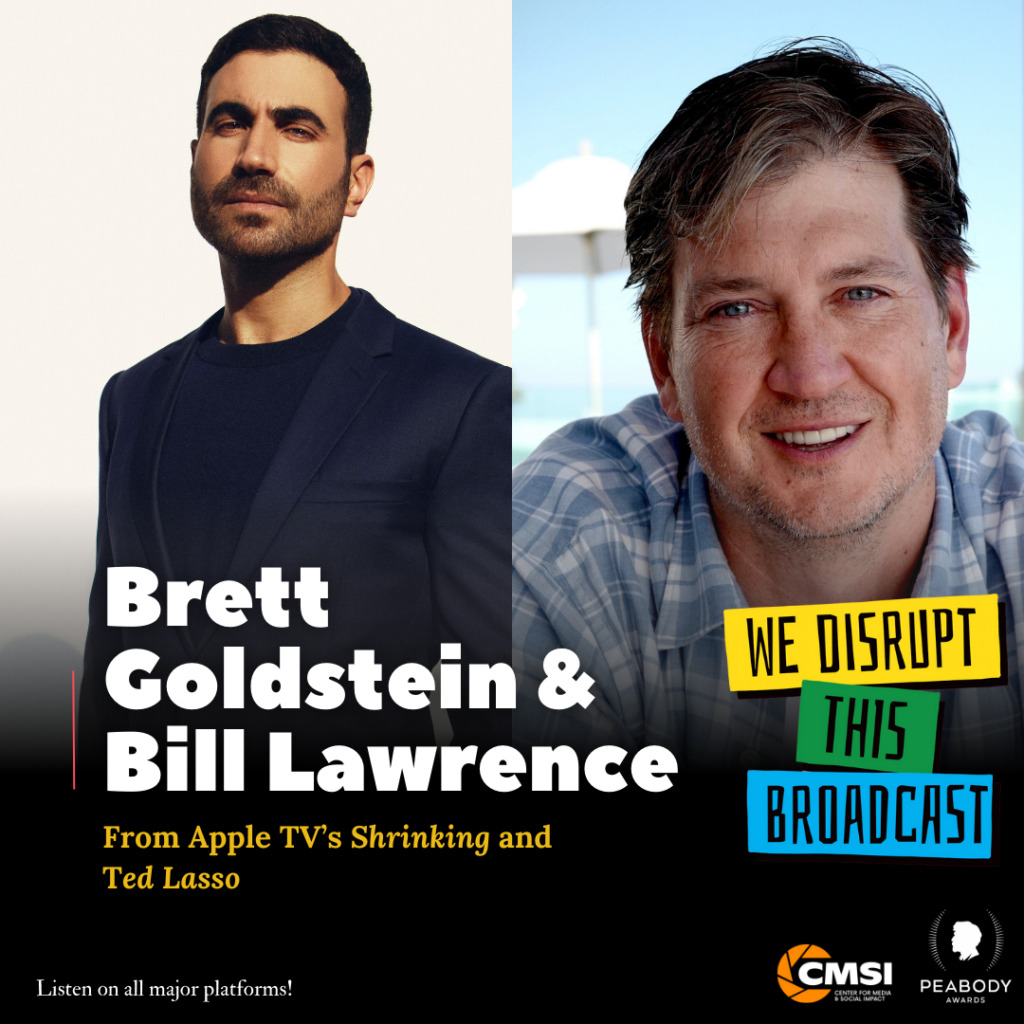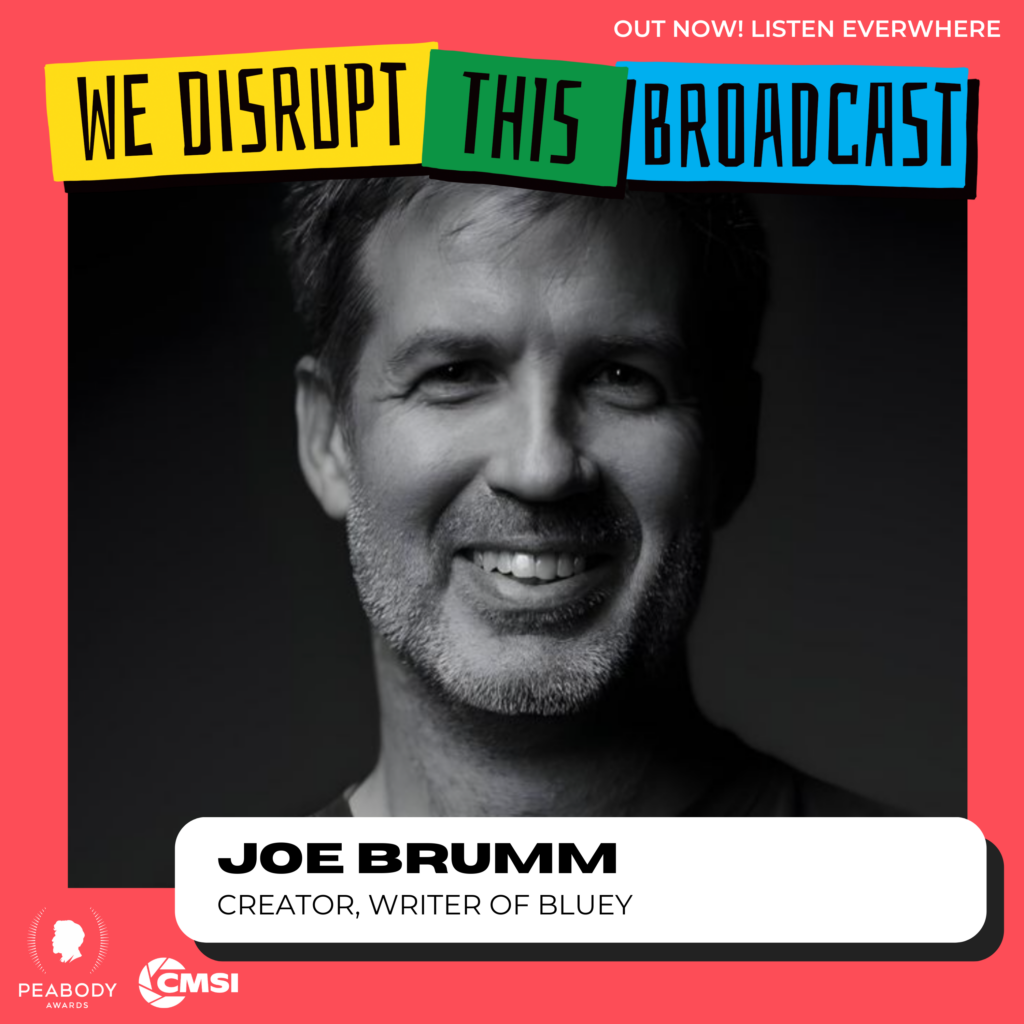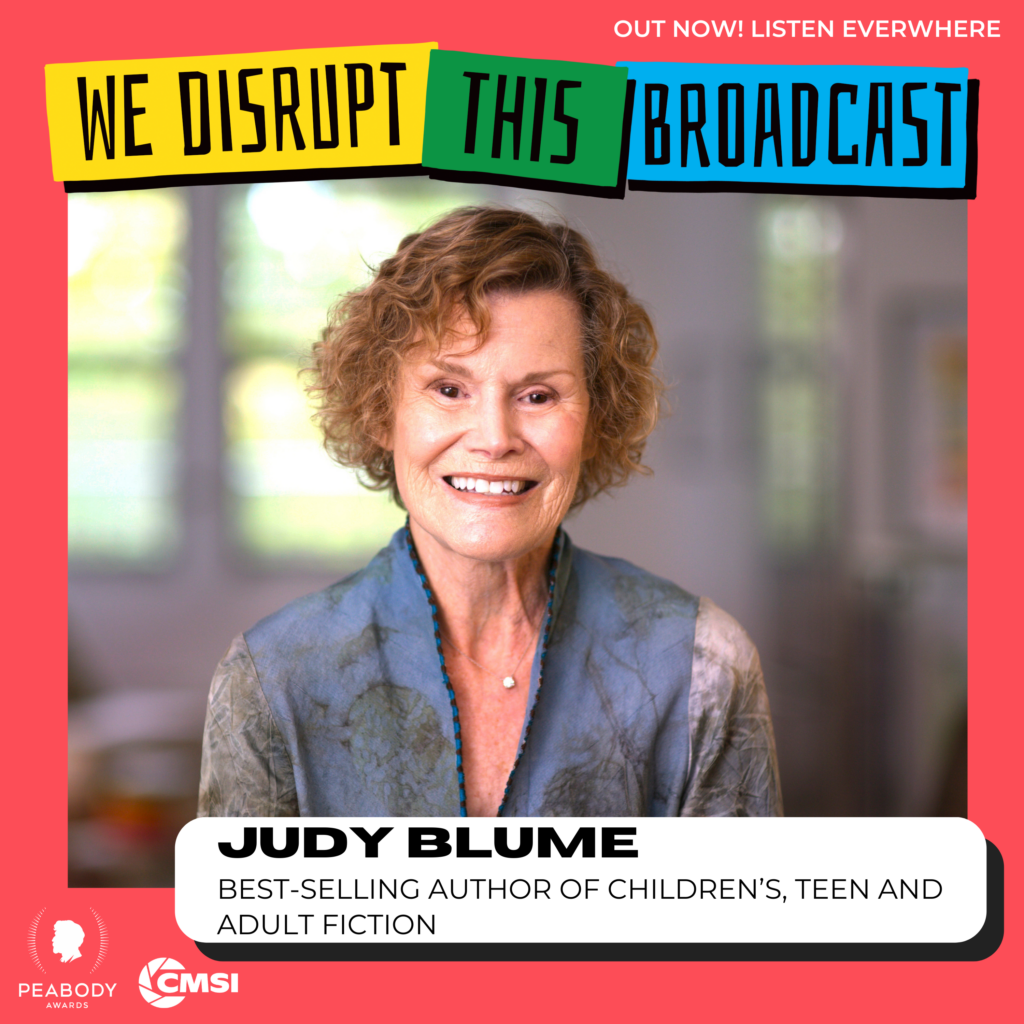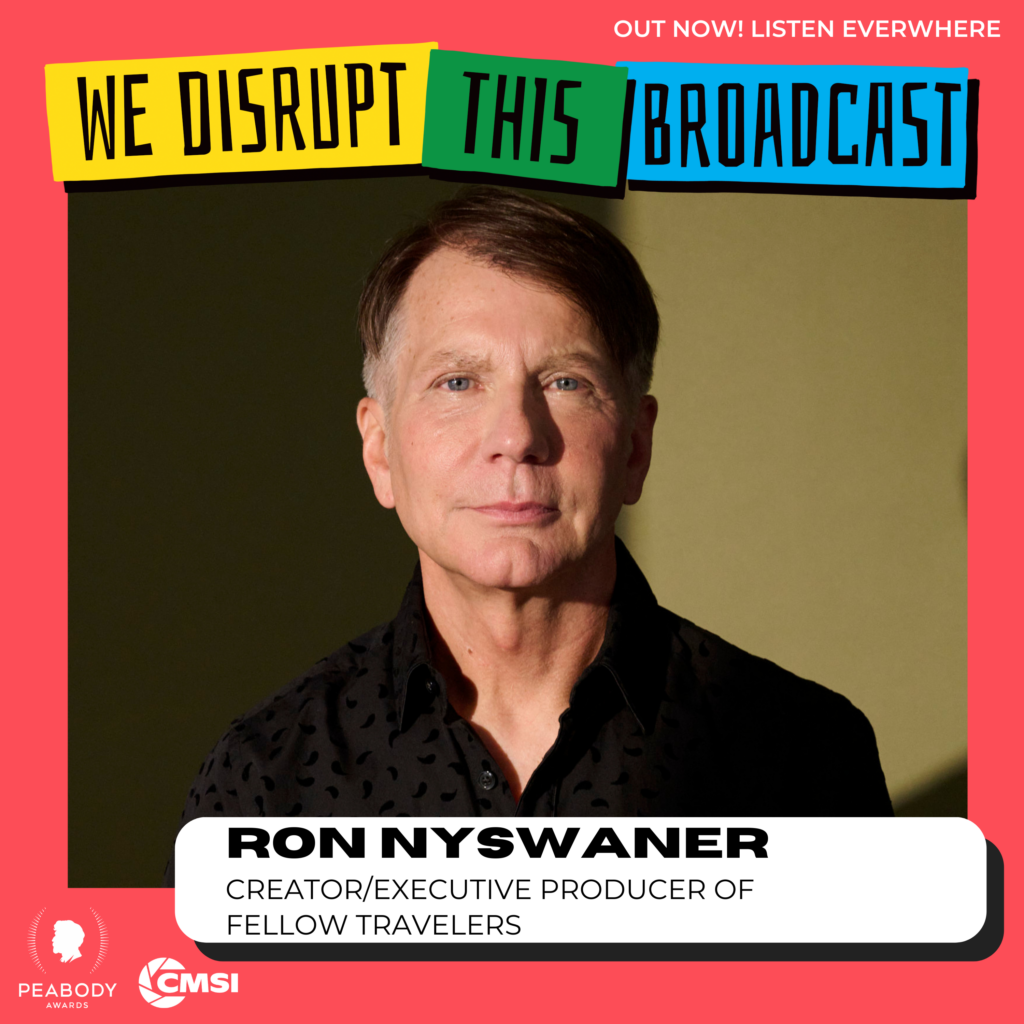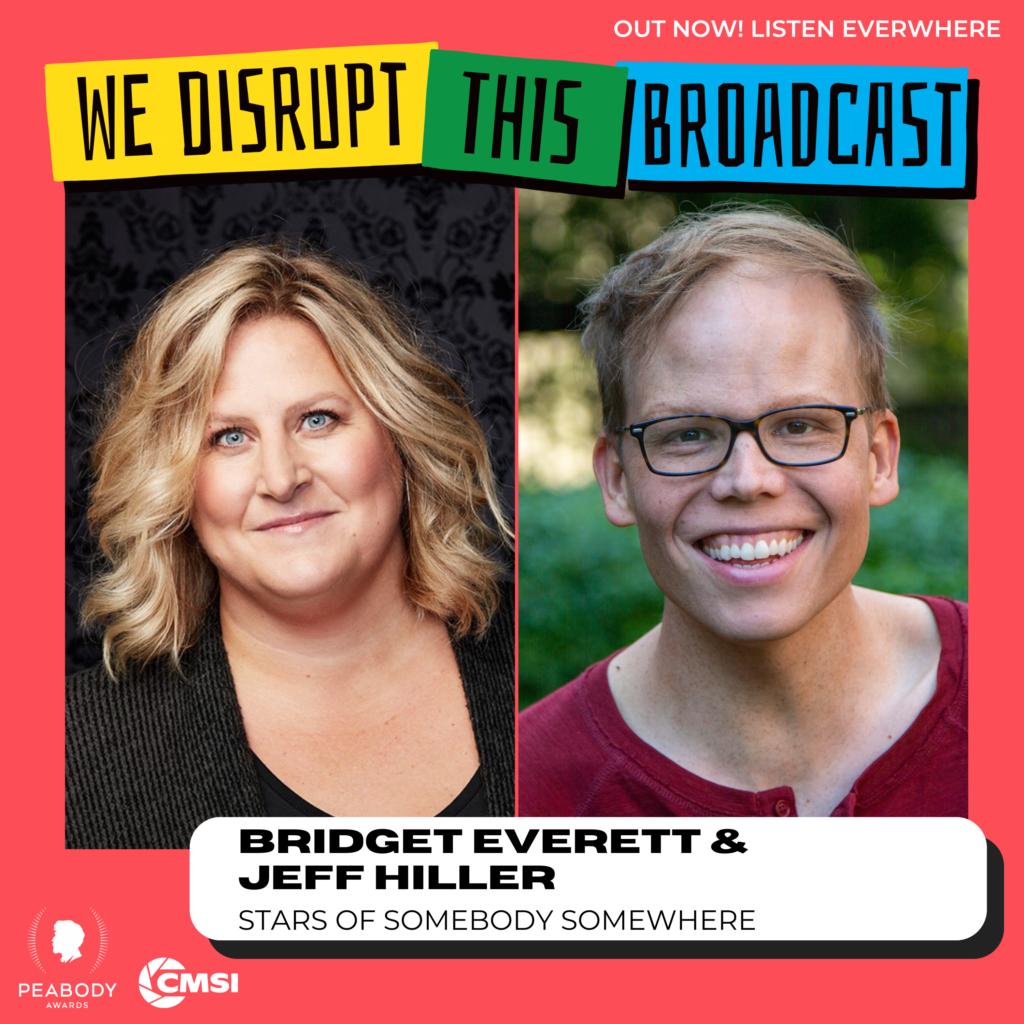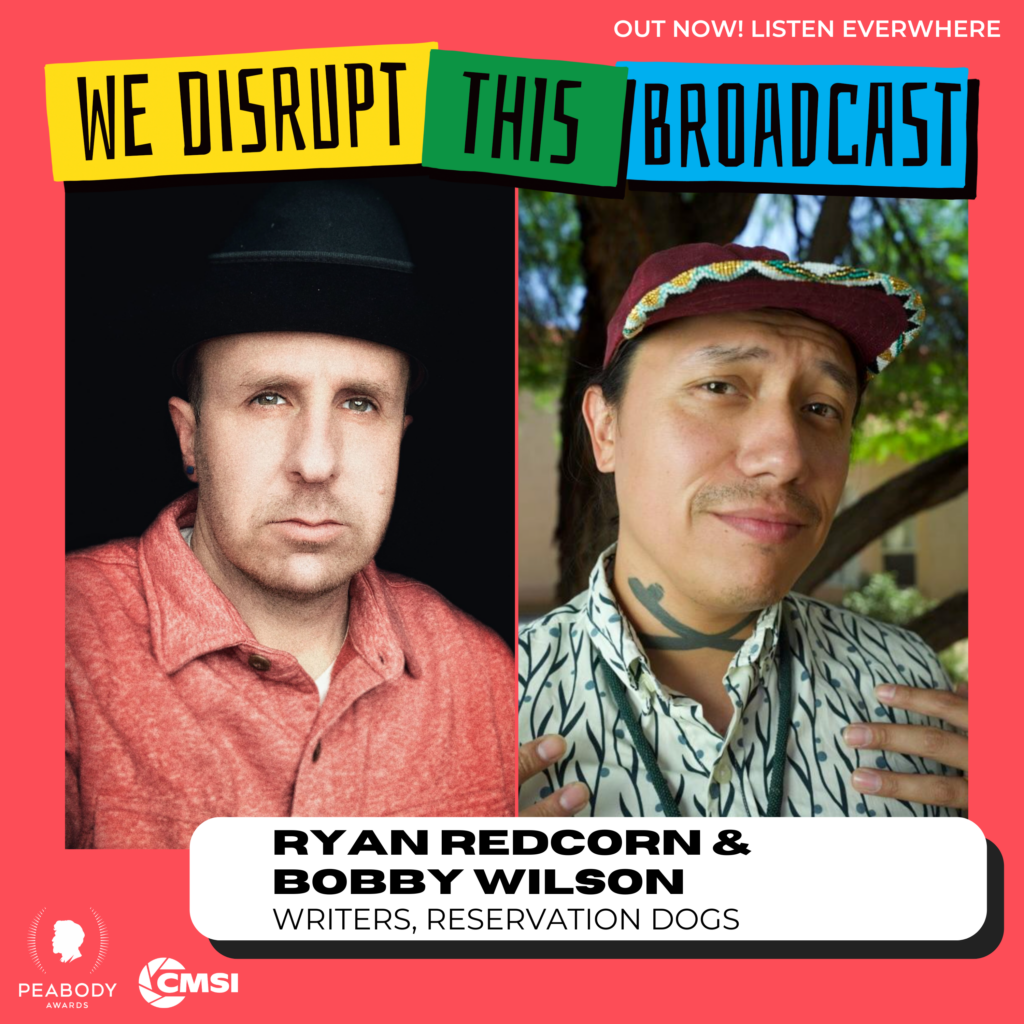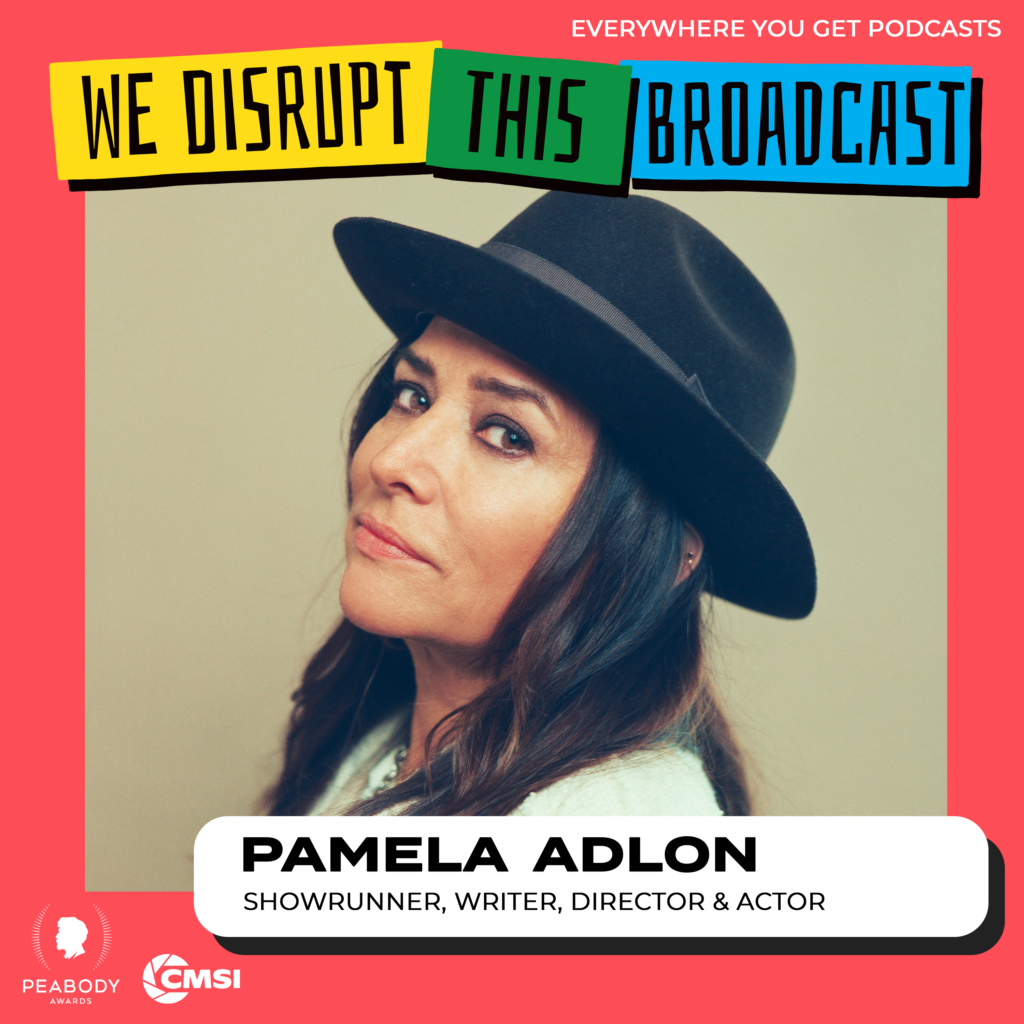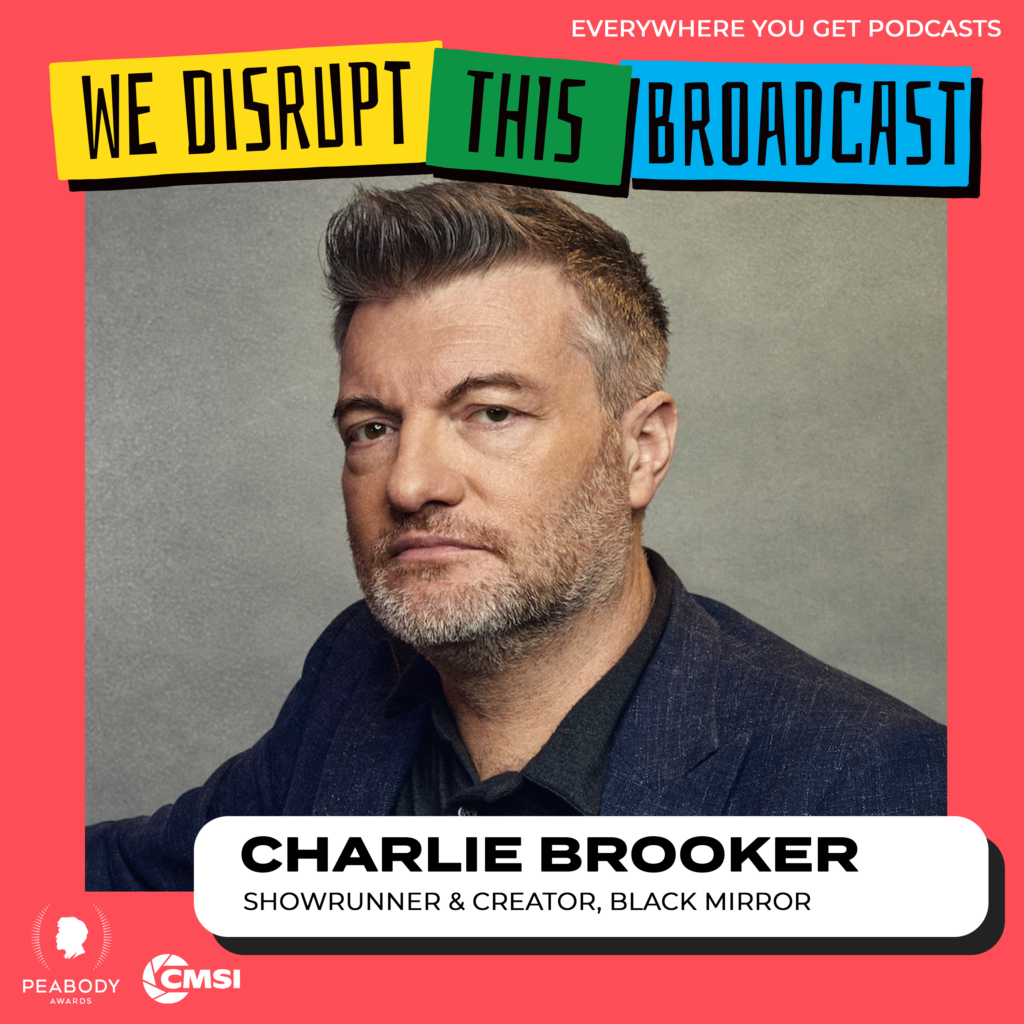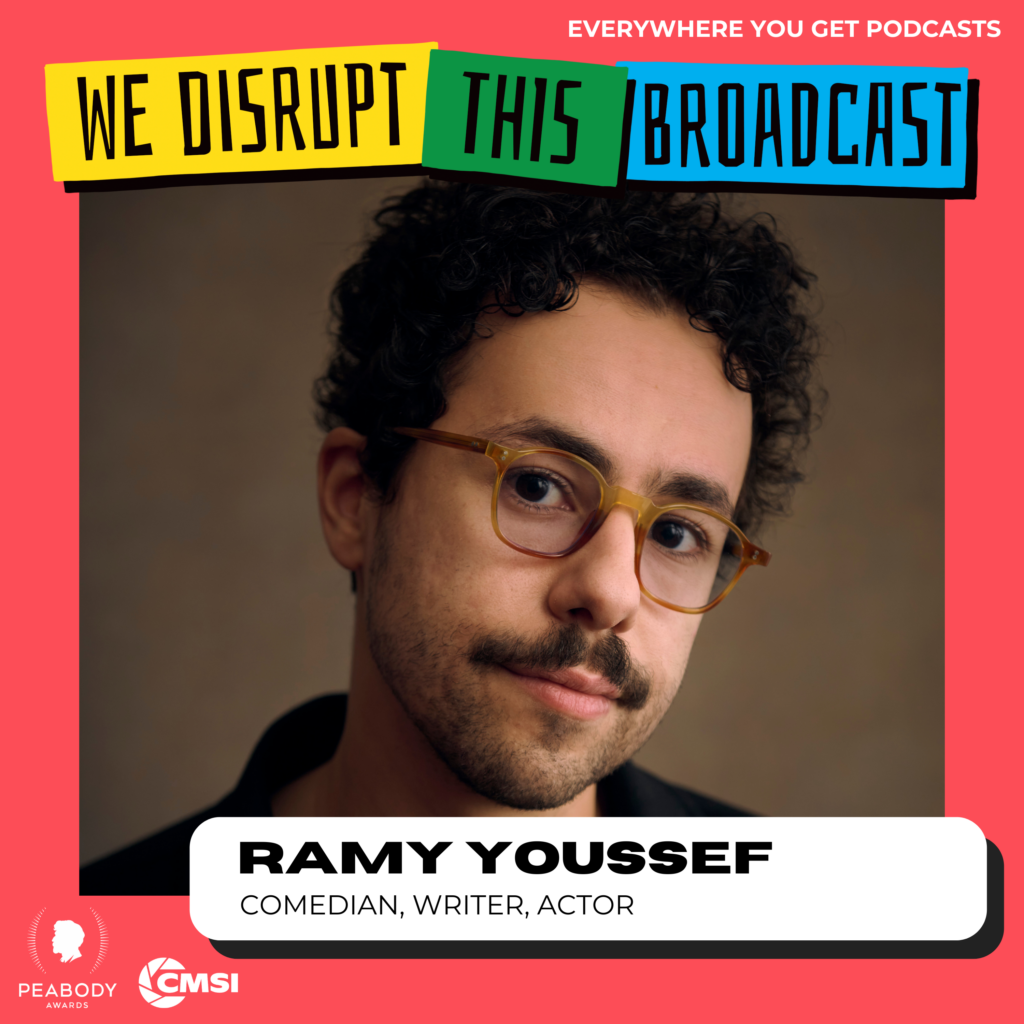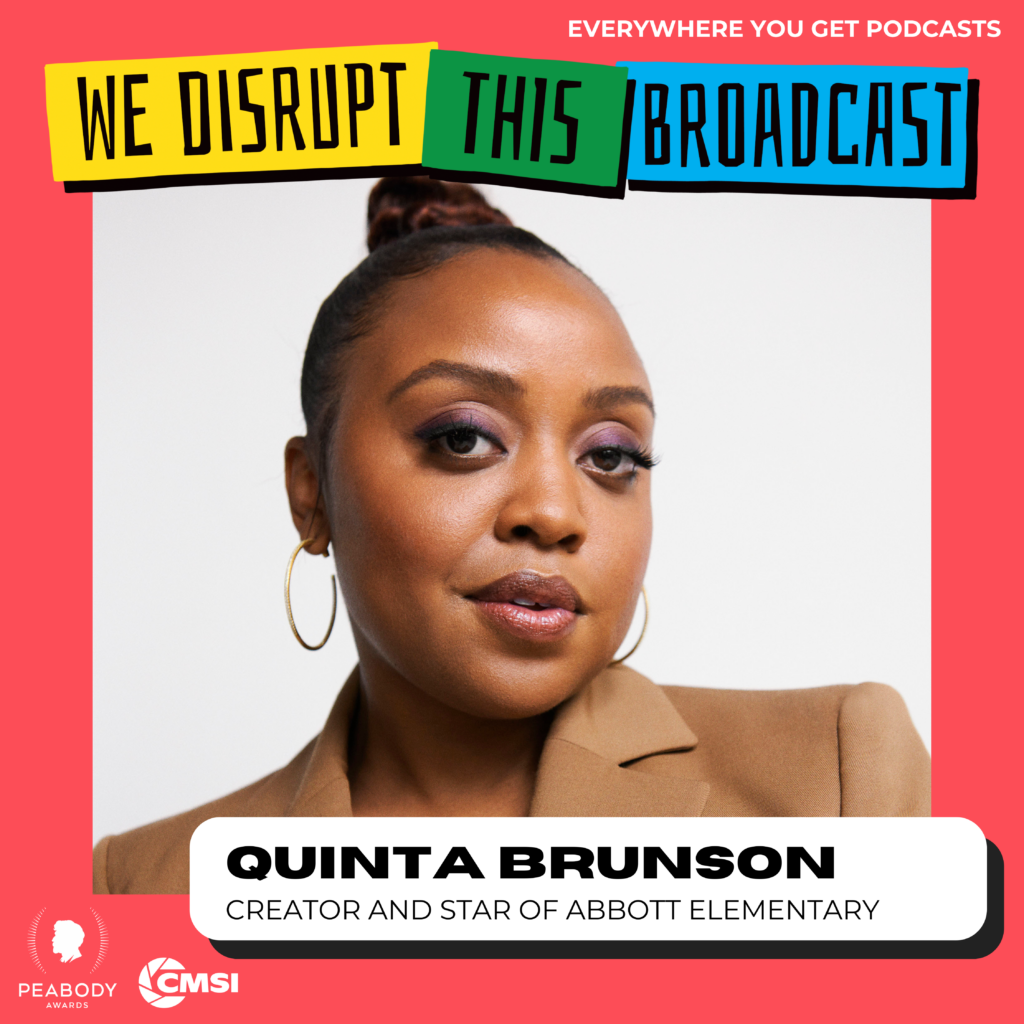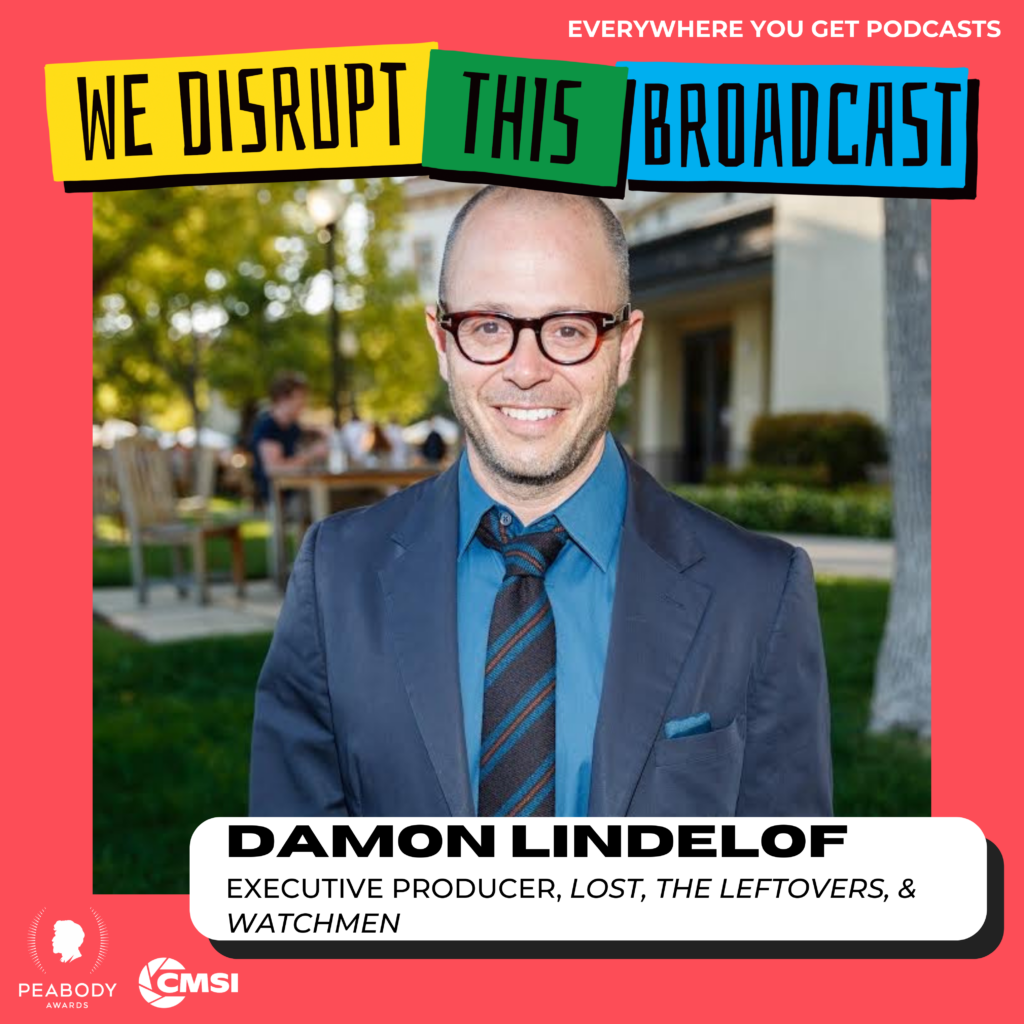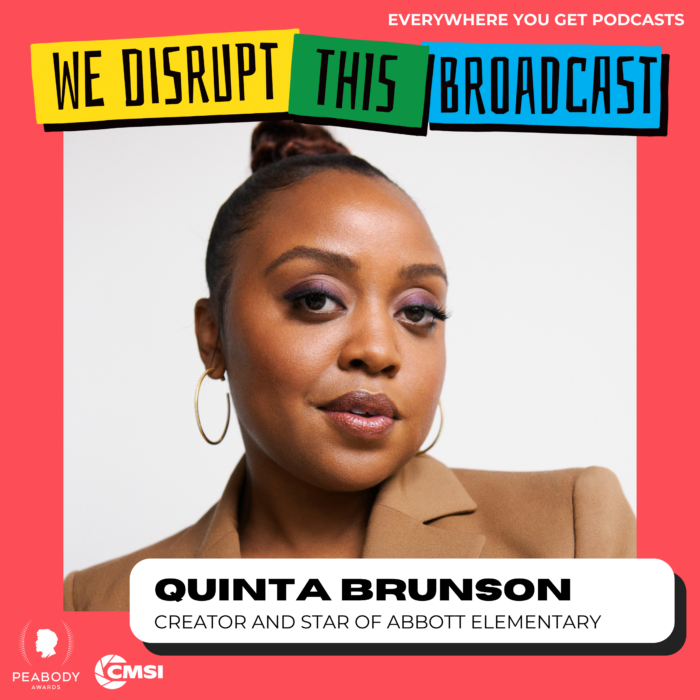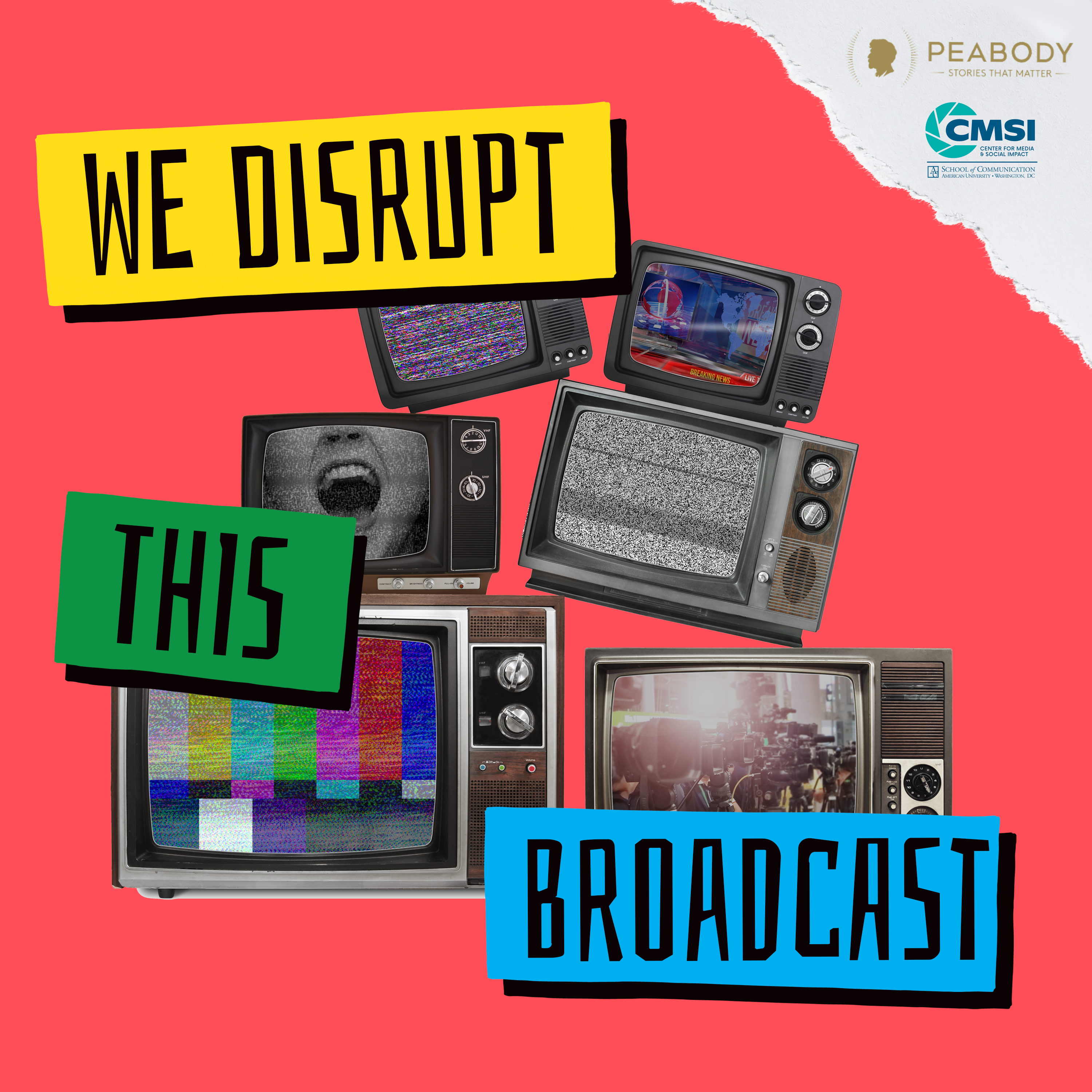Who are the risk takers that help reinvent and reimagine the kinds of stories we see on TV? And how do they disrupt what we’ve come to expect on our screens and in our culture? We Disrupt This Broadcast, the new podcast from The Peabody Awards and Center for Media & Social Impact, wants to answer these very questions. Produced and distributed in partnership with award-winning audio production group PRX, We Disrupt This Broadcast explores how the minds behind critically-acclaimed TV shows are re-imagining the world and tackling the big issues that move us forward. From intimate interviews with award-winning TV creatives to real talk with experts and social movement leaders, join us as we dive into the inner workings and cultural relevance of the shows that are changing all the rules and shaping our future.
We Disrupt This Broadcast is hosted by comedian Gabe González and features on-air contributions from Caty Borum, executive director of the Center for Media & Social Impact, Jeffrey P. Jones, executive director of The Peabody Awards, and comedian and actress Joyelle Nicole Johnson. In its first season, the podcast features conversations with TV showrunners like Abbott Elementary creator Quinta Brunson, Watchmen showrunner Damon Lindelof, and Ramy creator Ramy Youssef to explore how the most compelling TV shows and the creative powers behind them are upending the status quo — building new culture, community and, ultimately, power, for the very people who have been denied it in the past. Listen to We Disrupt This Broadcast – premiering April 11th and dropping on the second Thursday of every month. Available wherever you get your podcasts.
Soo Hugh on Family, Korean History, and Finding Home
Gabe González is joined by Soo Hugh, showrunner of the Peabody Award-winning series Pachinko, Apple TV’s trilingual series set in Japan and Korea. Pachinko is an epic family drama spanning more than sixty years of history, during and after the Japanese occupation of Korea. Through the eyes of protagonist Sunja, who moves to Japan with her husband and raises her children and grandchildren there, the series asks the question, “What is home?” We also talk to comedian and author Youngmi Mayer. In her memoir I’m Laughing Because I’m Crying, she brilliantly balances tragedy and humor as she recounts her life in Korea, the Northern Mariana Islands, and the U.S. in the wake of her family’s traumatic experiences under Japanese colonialism.
Hacks: Jen Statsky and Margaret Cho on Women Hacking the Comedy Business
Host Gabe González sits down with Jen Statsky, co-creator of HBO’s Peabody Award-winning series Hacks. We talk with Statsky about the complex relationship between the show’s two central characters - and their stark generational divide and friendship, while delving into broader themes of the complex history of women in comedy and the importance of female mentorship. In our second interview, the pod’s executive producer Caty Borum speaks with the ultimate Gen-X comedian, Margaret Cho, about how she’s maintained an outspoken, hilarious comedy career through various waves of American progress and regression, as well as how she’s mentoring up-and-coming queer and Asian comedians today.
Mo: Mo Amer on Immigration, Palestine, and Reppin H-Town
Comedian, writer and actor Mo Amer joins host Gabe González to talk about his Peabody-award winning show Mo. The show is a heartfelt yet hilarious glimpse into the lives of a Palestinian-American family waiting to be granted asylum in the US. The show explores grief, trauma, and our complicated immigration system while also depicting Amer’s deep love of his hometown, Houston, Texas. They talk about Amer’s comedy roots, his personal experiences as a refugee as well as writing season 2 of his show in the wake of October 7th and its aftermath. Following their conversation, Gabe considers broader questions of immigration and its representation on TV with Saket Soni, a labor organizer and human rights strategist working at the intersection of racial justice, migrant rights, and climate change.
Bluey: Creator Joe Brumm on Why Play is Essential to Shaping Good Humans
In this episode of We Disrupt this Broadcast, Gabe González introduces us to the Peabody Award-winning series, Bluey, an outstanding animated children’s show that has become renowned as the best family co-viewing experience. WDTB Executive Producer Caty Borum interviews creator and writer Joe Brumm about how he developed a series that is funny, heartwarming, realistic (despite its dog characters), and tackles some of life’s toughest issues in each 7-minute episode. They discuss the power of play in the lives of children (and adults), the strategy to make both parents and kids laugh and why it’s important to have a girl character lead the show. Gabe then chats with The Read host and podcasting legend Crissle, a vocal Bluey fan, about what makes the series so disruptive, changing the way we see children’s television.
Judy Blume Forever: Don't Put Judy Blume in the "Nice Lady" Box
In this episode, we ask the question, “Why is normalizing the experiences of adolescence, especially for young girls, so disruptive?” Caty Borum, WDTB Executive Producer and Executive Director for the Center for Media & Social Impact, interviews legendary author and disruptor Judy Blume, author of Are You There God? It’s Me Margaret, Blubber, Forever, and the center of the recent Peabody Award-winning documentary about her life, Judy Blume Forever. Caty and Judy discuss her inspiration, using writing to find a way to a better life, puberty as a time to celebrate girlhood, and finding community through fighting book bans. After their interview, Caty speaks with Chelsey Goodan, author of Underestimated: The Wisdom and Power of Teenage Girls, about the untapped power of teenage girls and the importance of feeling seen.
Fellow Travelers: Series Creator Ron Nyswaner Gets Us Hot for Queer History
Host Gabe González speaks with Ron Nyswaner, creator of the Peabody-Award winning historical romance, Fellow Travelers. In a far-reaching, in-depth conversation, Gabe and Ron discuss the evolution of gay identity, how to write complex queer characters, and why foot-licking scenes are an important part of getting young folks interested in queer history. After their interview, Gabe dives deeper into the history of queer representation on TV with documentary filmmaker and professor Katherine Sender.
Somebody Somewhere: Bridget Everett and Jeff Hiller on Platonic Love and Why Dreams Don’t Have Deadlines
In this episode, host Gabe González introduces us to the loving, incisive, and decidedly off-beat humor of Somebody Somewhere, a show that is redefining home, friendship, family, and even traditional narrative structure. He interviews the series’ stars Bridget Everett and Jeff Hiller and they discuss the importance of making friends after 40, found family, why queerness and faith are not contradictory, and how platonic love can sometimes be the one that helps us become fully ourselves.
Bobby Wilson and Ryan Redcorn (Reservation Dogs) on Joy, Grief, and Native Humor
Gabe González has an intimate and wide-ranging conversation with Bobby Wilson and Ryan Redcorn, writers on the two-time Peabody Award-winning show Reservation Dogs. They talk about the groundbreaking series, which features an all Native cast and crew, and how an all-Native writers’ room contributes to the accurate representation of reservation life on screen. Gabe is then joined by Dr. Philip Deloria, Native historian, to talk about the alternately hilarious and horrifying path for Native representation on TV, why flawed characters are important, and why Native folks might be the funniest people you’ll ever meet.
Pamela Adlon (Better Things) on Breaking the Taboos of Middle-Age Womanhood, Divorce, Menopause and More...
In this episode, we ask the question, “Why are women in midlife somehow still the ultimate taboo in this industry?” Caty Borum, Executive Director of the Center for Media & Social Impact, interviews Pamela Adlon, the creative powerhouse behind the Peabody Award-winning series, Better Things and director of the feature film Babes. Caty and Pamela discuss disrupting the narratives around women in midlife, menopause having an “it girl” moment and the necessity of divorce doulas. They also dive into her commitment to mentoring the next generation of women creators.
Episode 3: Ramy Youssef (Ramy) Keeps the Faith
In this episode, we ask the question, “Can faith help us find our place in an increasingly broken world?” Comedian and host Gabe González connects with Ramy Youssef over how he’s used his career in stand-up comedy to push boundaries around taboo subjects like religion and as a catalyst for his show Ramy. They dig into Ramy’s three-dimensional portrayal of an Egyptian, Muslim-American family in all their flaws and the way faith influences each character’s arc in profound ways. After the interview, Gabe sits down with Arij Mikati, Managing Director of Culture Change at Pillars Fund and consultant on Ramy to dig into the importance of showing an array of flawed, funny, fundamentally human Muslim Americans and how the women of Ramy are moving the conversation forward.
Episode 2: Quinta Brunson (Abbott Elementary) Schools Us on Optimism
In this episode, comedian Joyelle Nicole Johnson interviews writer-actor-creator Quinta Brunson about her breakout ABC series, Abbott Elementary, which explores nuanced topics like charter schools and underfunded public education in the most unexpected way – through a lighthearted workplace comedy. Abbott Elementary has built an enormous audience, earned several historic Emmys, and revitalized and revolutionized the network comedy. In this intimate yet lively conversation, Joyelle and Quinta talk Black 90s sitcoms, tackling tough issues with humor, and the enduring power of optimism. Later, host Gabe Gonzalez talks to TV critic Eric Deggans about the ways Abbott Elementary is continuing the legacy of the great Black sitcoms of the 90s and why this representation is so culturally relevant.


